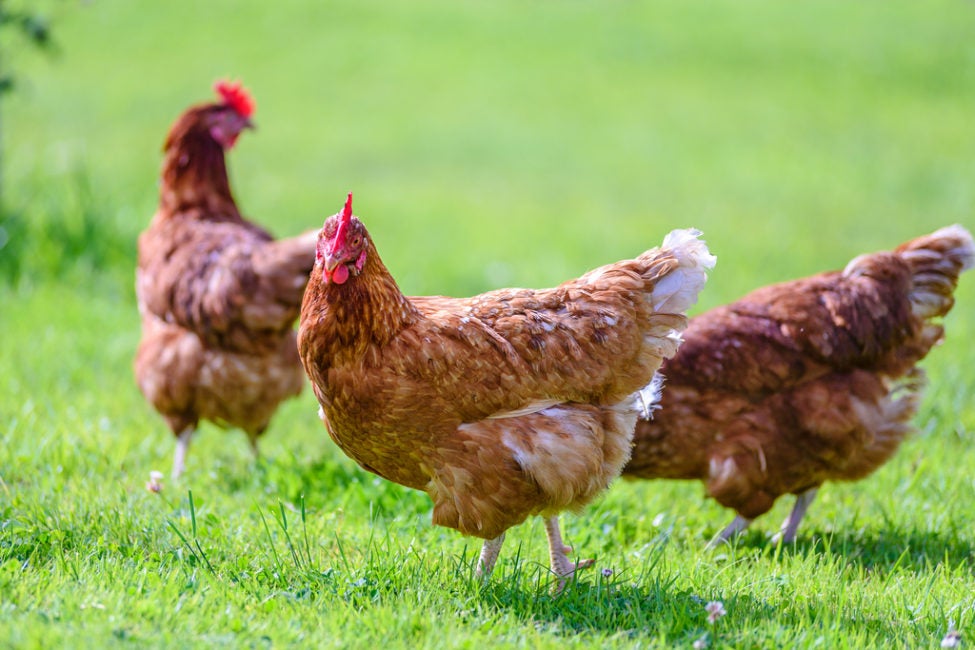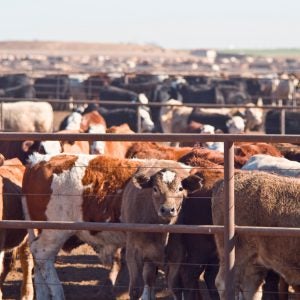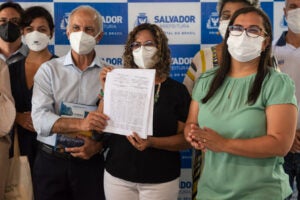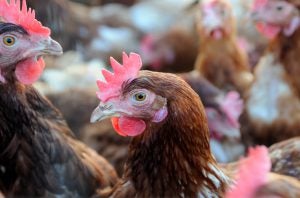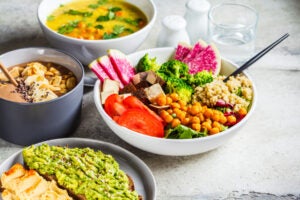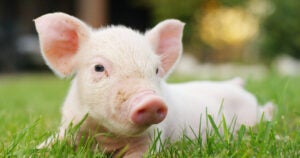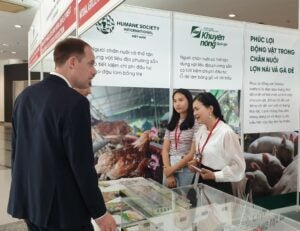
HO CHI MINH CITY, Viet Nam—Yesterday, Humane Society International and the National Agriculture Extension Center of Vietnam hosted “Animal welfare in food supply chains: from commitment to implementation.” The corporate roundtable highlighted the need for improving farm animal welfare policy and practices and how the collaboration between stakeholders throughout the supply chain can help with implementation of corporate animal welfare policy. This in-person event follows a series of virtual webinars hosted over the past two years.
Nearly 60 attendees, including experts from the hospitality sector, food processors and retailers, egg and pork producers, government officials and academics, gathered in Ho Chi Minh City. Participants discussed the importance of obtaining animal welfare expertise to help educate and align acrosss teams, the value of direct engagement with suppliers and how government can support the transition from cages and crates to more humane, higher-welfare housing systems and other topics.
Speakers from multinational corporations including Marriott Hotels and Mondelez International shared their animal welfare commitments and why the commitments are so crucial to their companies, as well as their plan for implementing those commitments.
The Vietnamese producer V.Food showcased their cage-free egg facilities, which provide hens space to move, dustbathe, nest and forage. V.Food began their journey last year in response to the growing demand for cage-free eggs in Vietnam. Representatives of Nguyen Khoi Farm, a pork producer in the midst of transitioning to group-housing, spoke about their decision to stop using gestation crates and communicating that to consumers through their label.
Dr. Ha Thuy Hanh, deputy director of the National Agriculture Extension Center, said in the opening speech: “Farm animal welfare is one of the core programs that the Vietnam government has prioritized, as it is growing around the globe. As a representative from Vietnam government, I’m very delighted to see the level of commitment by the food industry to higher animal welfare, and the pioneering producers who are supporting them to address the welfare of farm animals. NAEC is committed to collaborate further with HSI to provide support to producers and other stakeholders.”
Hang Le, Southeast Asia manager for HSI’s farm animal welfare program, stated, “We are pleased with the positive feedback we received from this event and look forward to continuing to foster open dialogue and collaboration among stakeholders in the country to improve the welfare of animals on farms.”
HSI animal science and policy experts covered animal welfare science and its importance, as well as the tools and assistance they can provide to support companies and producers as they transition. Dr. Saravanakumar Pillai, HSI’s senior advisor on animal welfare briefed attendees on the cage-free progress in Malaysia and how it could be applied to Viet Nam.
Around the world, every year, more than 6 billion hens and an estimated 75 million sows are confined in cages and crates so small that they are unable to engage in important natural behavior, including walking or stretching their limbs. These animals suffer tremendously as a result of spending nearly their entire lives in such physically and behaviorally restricted conditions.
Animal welfare is a corporate social responsibility issue for companies in Viet Nam resulting in a major shift in the country’s food industry towards more ethical sourcing of animal products. Dozens of food industry leaders in Viet Nam, including Mondelez International, Marriott International, Unilever, Fusion, 4P’s and Accor, have committed to sourcing exclusively cage-free eggs in their supply chains.
#
Reference in this article to any specific commercial product or service, or the use of any brand, trade, firm or corporation name is for the information of the public only, and does not constitute or imply endorsement by HSI or any of its affiliates of the product or service, or its producer or provider, and should not be construed or relied upon, under any circumstances, by implication or otherwise, as investment advice.
ENDS
Media contacts:
- Hang Le, manager in corporate and supplier engagement for the farm department at HSI: hanglt@hsi.org;
- National Agriculture Extension Center: duydieu71@gmail.com


